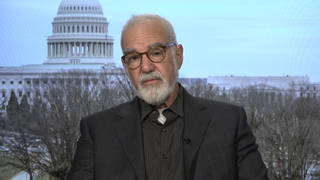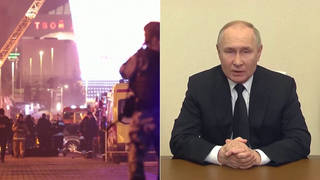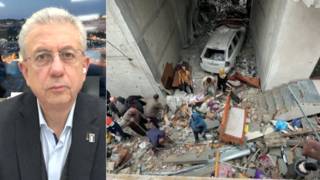Istanbul, April 5, 2023—Turkish authorities should allow media and journalists to do their jobs, and investigate reports of journalists being attacked by security forces and threatened online for their election reporting, the Committee to Protect Journalists said Friday.
After Sunday’s local elections, Turkey’s highest election authority, the Supreme Election Council (YSK), rescinded the victory of a pro-Kurdish Peoples’ Equality and Democracy Party (DEM) mayoral candidate on Tuesday, in the eastern metropolitan city of Van, on grounds that he was not eligible to run. YSK then certified election results in favor of Turkish President Recep Tayyip Erdoğan’s Justice and Development Party (AKP), which received the second-most votes.
The decision, as well as claims of voter fraud at polling stations in the mostly Kurdish-populated regions of eastern and southeastern Turkey, led to days of social unrest in multiple cities with Van being the foremost epicenter. Another major site of protests and clashes occurred in the southeastern city of Hakkari, where the results of 60 ballots were contested by AKP and six contested by DEM.
Police intervened in the protests with arrests, tear gas, rubber bullets and water cannons, targeting several field reporters, some of whom were taken into custody. Multiple journalists also reported receiving threats and insults online and offline.
“Field reporters are among the most vulnerable journalists in Turkey. Security forces, and even civilians, exploit the country’s institutionalized impunity to pressure journalists into not doing their jobs. Their hostility extends to not taking threats against journalists – whether online or face to face — seriously,” said Özgür Öğret, CPJ’s Turkey representative. “Turkish authorities should, protect all journalists who believe their security is compromised, remove the issued foreign travel bans, investigate the claims of excessive force, and end the constant violent actions against field reporters.”
All of the field reporters in Van who spoke to CPJ said they were tear-gassed on both Tuesday and Wednesday. Protests ended and turned into celebrations by Wednesday evening in Van after the DEM candidate’s win was recognized by authorities.
CPJ documented these actions against journalists in post-election unrest:
- Police in the Esenyurt District of Istanbul took four journalists into custody Wednesday while they were following a protest march in solidarity with the DEM Party’s troubles in Van: Ferhat Sezgin with the pro-Kurdish news outlet Mezopotamya Agency, Sema Korkmaz with the pro-Kurdish daily newspaper Yeni Yaşam, Müzeyyen Yüce with the critical news website Artı Gerçek, and Dilan Şimşek from the pro-Alevi PİRHA news agency. Police beat the journalists and broke Sezgin’s nose, and smashed his camera, according to reports. The journalists were brought to an Istanbul courthouse for processing on Friday, according to reports. Prosecutors transferred Sezgin and Korkmaz to a court on duty, asking for their arrests pending investigation while Yüce and Şimşek were released. All four were later released, Sezgin and Korkmaz, under a foreign travel ban.
- Freelance journalist Medine Mamedoğlu, from the southeastern Province of Hakkari, posted on X that she received death threats in connection with her reporting on the protests in Van. Separately, Mamedoğlu was briefly taken into police custody in Hakkari on Wednesday while she was following a protest march. CPJ spoke to the journalist by phone Thursday, and she said her lawyer will file criminal complaints regarding the death threats alongside complaints against the police officers who took her into custody in Hakkari. Mamedoğlu told CPJ that the officers tried to take her two cameras and beat her when she resisted. “They punched me in the mouth, hit me in the back, pulled my hair and throttled me,” she said. One of her two cameras was broken and another suffered a damaged lens, according to the journalist.
- Freelance journalist Oktay Candemir said in a post on Wednesday that police officers in Van forcibly deleted images on his phone, threatened to get him off the street and insulted him. Candemir told CPJ via messaging app on Wednesday that the officers also punched him in the face. The journalist said he will file a criminal complaint about the incident.
- Freelance journalist Ruşen Takva was subjected to water cannons from a police tank as he was livestreaming from the streets of Van on Tuesday. The journalist also said, in a post on X on Tuesday, that he was receiving threats and insults on social media over his reporting. Takva talked to CPJ via messaging app on Wednesday and said he will file complaints about the insults and the threats via his lawyer.
- Kadir Cesur, Van reporter for critical news site Gazete Duvar, told CPJ via messaging app on Thursday that he was deliberately shot at with rubber bullets by the police on two separate occasions on Tuesday and Wednesday. “Police were shooting at the protesters with rubber bullets. We were separate from them as a group of journalists. One of the officers suddenly turned and opened fire on us,” said Cesur about the Tuesday incident, when he was shot in his left kneecap. Police also fired at journalists in another location in Van on Wednesday and hit Cesur once more on the left leg. He told CPJ that he hasn’t filed a complaint, and he doesn’t intend to.
- Umut Taştan, a reporter for the critical outlet KRT, reported being hit by the police with rubber bullets in Van on Wednesday. CPJ couldn’t reach Taştan for comment.
- Rabia Önver, a reporter for the pro-Kurdish news website JİNNEWS in Hakkari, was hit by a rubber bullet in the foot as she followed police taking protesters in custody on Wednesday. Önver spoke to CPJ via messaging app and said she was not hurt and won’t be filling a complaint.
- Muhammed Şakir, a camera operator for the Iraq-based Kurdish outlet Rudaw, was hit on the leg with a gas bomb canister as he reported on the events in Van on Wednesday, his employer shared in a post on X. CPJ couldn’t reach Şakir for comment.
- Ece Üner, a presenter for the critical outlet Sözcü TV, on Wednesday said she received a death threat on X for commenting on the situation in Van. CPJ couldn’t reach Üner for comment.
- Ne Haber Ajansı, a local outlet from the southeastern city of Siirt, reported on Tuesday that their reporters were injured by police and hospitalized while covering protests in their city. CPJ spoke to reporter Yusuf Eren via messaging app on Thursday. Eren was hit in the foot by a tear gas canister, and Bünyamin Aybek, another reporter for the outlet, needed medical help after being exposed to tear gas, he said.
Meanwhile, multiple news outlets reporting on claims of voting fraud on Sunday were blocked from publishing those stories online in Turkey by court order, local anti-censorship group Free Web Turkey reported.
CPJ emailed the Turkish Interior Ministry, which oversees the police, and the Istanbul Chief Prosecutor’s Office for comment but did not immediately receive any replies.
This content originally appeared on Committee to Protect Journalists and was authored by Committee to Protect Journalists.
This post was originally published on Radio Free.















